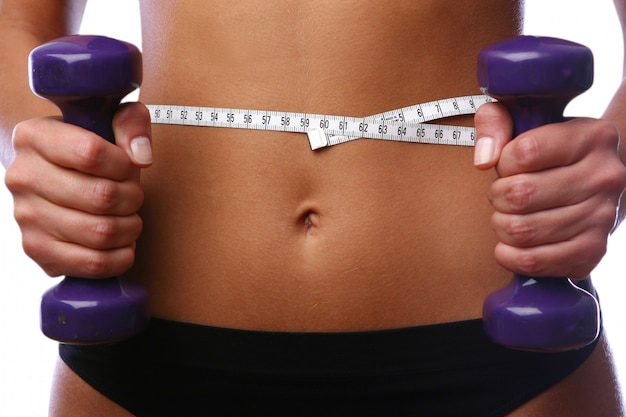
If you want to lose weight, you might think you need to count calories and eat less, right? Well, not necessarily, says Terry Fairclough, a personal trainer and co-founder of Your Body Programme.
I’ve been in the fitness industry for a while, and I’ve heard all sorts of questions about the best diets for weight loss. People often wonder if they should count calories, switch to a low-fat or low-carb diet, or maybe try fasting. There’s also debate about whether we should eat three regular meals a day or smaller, more frequent ones.
A huge calorie deficit might make you lose weight, but that doesn’t always mean you’ll lose fat, which is actually what most people want. Even though we often overeat in the Western world, drastically cutting calories isn’t the best answer. When trying to lose weight, many people think they need to eat as little as possible, but that’s not quite the case.
Here’s why: When we eat, our bodies break down carbs into glucose, a type of sugar that fuels our cells. If we don’t use all this glucose right away, our muscles and liver store it as glycogen, which consists of glucose molecules and water. When we cut calories drastically, what we actually lose first is this stored glycogen and water, not fat.
If you cut calories too much, your body might think it’s in danger and start holding onto fat while breaking down protein for energy instead. This is why having enough calories, especially from all three macronutrients—carbs, fat, and protein—is crucial. Contrary to what some believe, healthy fats are an essential energy source and help you exercise better. Cutting them out could leave you tired and without enough energy to burn fat.
Not eating enough calories can also lead to nutritional deficiencies, affecting your immune system, liver, and digestion. It can make you feel fatigued, malnourished, and might even cause more serious health issues like osteoporosis, anemia, and hormonal problems, including issues with fertility.
Too few calories can also stress your body, which then releases the stress hormone cortisol. While cortisol can cause short-term weight loss by breaking down energy stores, chronic stress and high cortisol levels lead your body to hold onto fat, slowing down your metabolism and possibly leading to weight gain, especially around the belly.
Another issue with eating too little is that it can disrupt your sleep. Low blood sugar can cause adrenalin to kick in, waking you up. Poor sleep affects everything from liver detoxification to your overall health and weight loss efforts.
I’ve seen bodybuilders restrict calories to get lean before competitions and then increase their intake afterwards. But if not done properly, this can lead to illness. Constantly cutting calories can confuse your body into storing fat anytime you eat a bit more than usual.
The key is to eat the right number of calories for your body type, goals, and activity level. My Your Body Programme helps people figure out their calorie needs based on specific body types. You only have one body, so it’s important to nourish it properly and keep your metabolism going strong.
In summary, eating enough calories from lean proteins, healthy carbs, and fats is essential. Include foods like lean beef, chicken, eggs, fish, pulses, legumes, tofu, fruits, vegetables, sweet potatoes, quinoa, brown rice, whole wheat pasta, avocados, nuts, seeds, olives, and olive oil in your diet.
Eating well and not drastically cutting calories will help you lose fat and stay healthy.